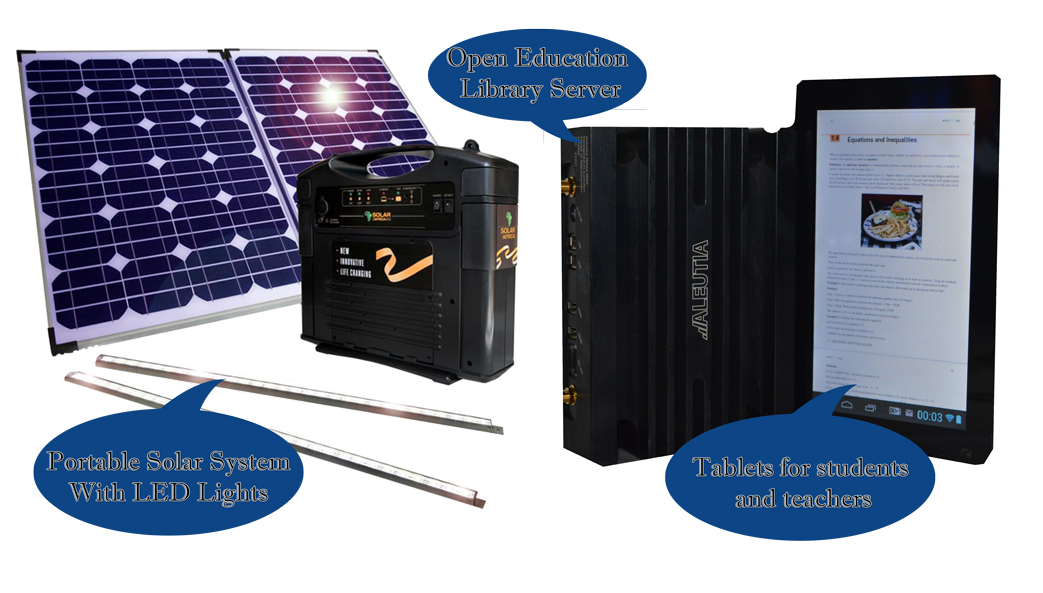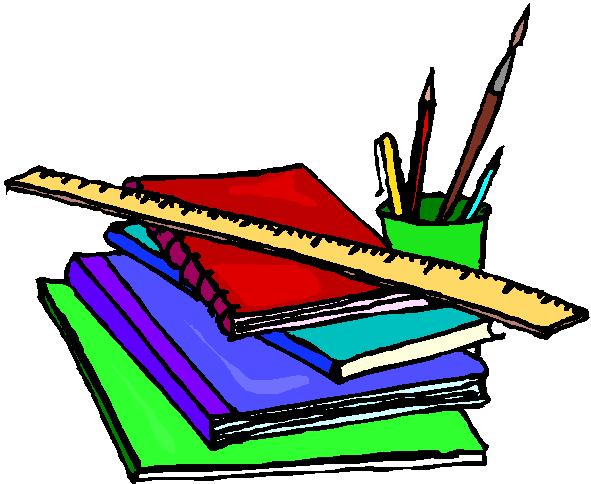
Solar Powered Open Education Library in a Box for Schools in Sierra Leone
We want to put thousands of open education materials available on the internet and those developed by trained local teachers in Sierra Leone base on their curriculum in the hands of students and teachers mainly in communities/districts/towns/villages/chiefdoms were textbooks, electricity, internet, computers, science labs are libraries are not reliable or existing.
The Problem
Many students and teachers in the developing world like Sierra Leone lack access to basic textbooks, electricity, computers, school library and science labs. Due to this situation, students and teachers with potentials to become the next great innovators cannot fully take advantage of there potentials. The governments of these countries in most cases, lack the knowledge and resources to help the student though corruption and other political issues are sometimes the root cause.
Sierra Leone’s Information and Communication Technology (ICT) in education survey results of 2009 compiled by InfoDev.org indicates that the education sector’s ICT infrastructure is under-served. There are approximately 81 technical/vocational education institutes serving 5,824 students with a teaching population of 219 including university professors but only 2% of these students and teachers are computer literates. In primary and secondary schools, it’s less than 2%. Due to lack of adequate teaching materials, access to education technology, instructional technology, information and communication technology tools which boils down to poor results in national examinations leading from primary to JSS, JSS to SSS and SSS to college/university.
Student enrolment rate continues to increase in primary schools, junior secondary and, senior secondary schools at an alarming rate but the total number of math, science and technology education students and teachers continues to decrease even further Sierra Leone’s Information and Communication Technology (ICT) in education.
Many of the country’s residents are illiterate or have received very little formal education. The statistics are shocking:
- Only 39% of the population (10 years old and older) is literate.
- The literacy rate of men is higher than that for women nationally and by region.
- The national literacy rate for men is 49% while that for women is only 29%.
- 40% of individuals in Sierra Leone age 6 to 29 have never attended school or received formal education.
Solution
Our solution is simple and in three folds; One is to develop a “Solar Powered Open Education Library in a Box”. Two is to provide free, reliable, rugged and robust tablets to students and teachers to access, download and store the content in the library for 24/7 use anywhere. And third is to train select teachers on how to create open education content base on their local curriculum, record lectures and laboratory experiments as they are being performed and upload such content in the library for consumption by students. The server is a small, rugged, fan-less, solar optimized low power server running Linux and using a 500GB solid state Hard Drive and 4GB of RAM. It will host a web Server, Wireless AccessPoint and Internet Cache Server software. Portable solar system will double as power source for the server and charging station for tablets especially for students and teachers without electricity at home. The LED lights included with the solar will serve as lighting for students to study at night in the school library.
Why Low-Power Server, Solar and Tablets?
- Traditional desktops from Dell, HP, etc. are designed for air-conditioned offices where power outs happen annually
- As African economies develop, this one-size fits all approach to computing is absurd
- Our Partner for this project, Aleutia designs computers from the ground up for their environment
- Because fans suck in dust and cause computers to fail, Aleutia create cases that work as heatsinks and transfer out the heat so we don’t need fans
- Because we work in remote areas where spare parts are difficult to obtain, Aleutia build the computers with no moving parts by replacing the hard drive with SSD
- Most importantly, because most places don’t have any power like Sierra Leone but have lots of sun, Aleutia make computers that run on solar
- Solar is still Expensive and every watt costs money, so you need to make the computer super efficient to begin with
- Good news is that Intel is making things easier so Aleutia is offering Low Power, Fanless computers that are still fast.
- For education they are transformative – schools with no periodic tables suddenly have interactive chemistry applications
- schools with no books have all of wikipedia and thousands of books and more
Example
Lets consider a developing country named ‘A’ whose Ministry of Education has welcomed the idea and obtained funding to have selected teachers trained on how to develop open education textbooks and record lectures for the server. Country ‘A’ funds the deployment of at least one “Solar Powered Open Education Library in a Box” in each school and subsidize the cost of each customized tablets for students and teachers to make it affordable for all. Each school will require that students buy the subsidized tablet and that the tablet is brought to school each day for charging and new content. The teachers will require students to read and watch specific chapters as assignments daily. Every student will have the same chances of success
Impact
The impact will be measurable through statistics. In Sierra Leone where I intend to pilot the project, the failure rate of students in the West African Examination Council Basic Education Certificate Examination (BECE) and West African Senior Secondary Certificate Examination (WASSCE) increases every year. As a matter of fact, the Government of Sierra Leone, in 2008 add one extra year to Senior Secondary School Education with the hope that it will increase the pass rate. My solution will increase the pass rate of student in these exams because the local content will be based on these exam curriculums. I anticipate there will be an increase of 5% in the first year, 10% in the second year and more than 20% in the third year in schools that have deployed the system for use by Junior and senior secondary students. See: http://news.sl/drwebsite/publish/article_200522075.shtml for more info.
Marketplace
The eGranary Digital Library – also known as “The Internet in a Box” – provides millions of digital educational resources to institutions lacking adequate Internet access. Mindset Network a not-for-profit organisation set up in 2002 is providing educational solutions for the formal education and health sectors in South Africa. The major difference here are; power source, power consumption of computers used, scalability and mobility access. We want to put the materials in the hands of students and teachers on tablets that will be with them 24/7 and can be used whenever they want.
Sustainability Plan
Because the server is low powered using between 10Watts and 20Watts and it being powered with solar energy and 12 volt batteries, there is no doubt it will be sustainable compared to AC powered solutions. More than 80% of our target beneficiaries are without grid power. Where its available, its not affordable and reliable. The ruggedness of the server, use of solid state hard drives and fan-less configuration reduce maintenance on the PC.
TAKE ACTION NOW
- http://www.changemakers.com/project/solar-powered-open-education-library-box
- https://www.facebook.com/SolarPoweredOpenEducationLibraryInABox?fref=ts and donate at
- http://www.indiegogo.com/projects/solar-powered-open-education-library-in-the-box
- Or via paypal to donate@lamtechfoundation.org.
You can also send financial contributions via check or money order to Lam-Tech Foundation, Inc. 1575 Lexington Avenue, 26, New York, NY 10029
© 2013, https:. All rights reserved.







Tamba Lamin / Author
/
If the kids in Ethiopia can do it, those in Sierra Leone can do the same. Read the story below and see how tablets can be used effectively.
http://www.technologyreview.com/news/506466/given-tablets-but-no-teachers-ethiopian-children-teach-themselves/
24th June 2013